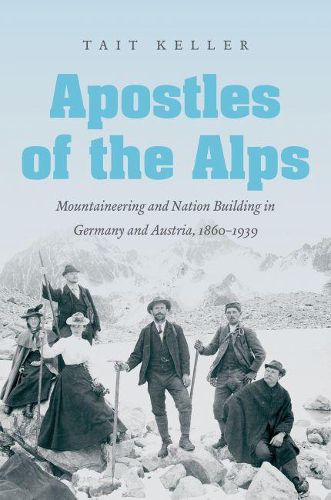Readings Newsletter
Become a Readings Member to make your shopping experience even easier.
Sign in or sign up for free!
You’re not far away from qualifying for FREE standard shipping within Australia
You’ve qualified for FREE standard shipping within Australia
The cart is loading…






Though the Alps may appear to be a peaceful place, the famed mountains once provided the backdrop for a political, environmental, and cultural battle as Germany and Austria struggled to modernize. Tait Keller examines the mountains’ threefold role in transforming the two countries, as people sought respite in the mountains, transformed and shaped them according to their needs, and over time began to view them as national symbols and icons of individualism.
In the mid-nineteenth century, the Alps were regarded as a place of solace from industrial development and the stresses of urban life. Soon, however, mountaineers, or the so-called apostles of the Alps , began carving the crags to suit their whims, altering the natural landscape with trails and lodges, and seeking to modernize and nationalize the high frontier. Disagreements over the meaning of modernization opened the mountains to competing agendas and hostile ambitions. Keller examines the ways in which these opposing approaches corresponded to the political battles, social conflicts, culture wars, and environmental crusades that shaped modern Germany and Austria, placing the Alpine borderlands at the heart of the German question of nationhood.
$9.00 standard shipping within Australia
FREE standard shipping within Australia for orders over $100.00
Express & International shipping calculated at checkout
Though the Alps may appear to be a peaceful place, the famed mountains once provided the backdrop for a political, environmental, and cultural battle as Germany and Austria struggled to modernize. Tait Keller examines the mountains’ threefold role in transforming the two countries, as people sought respite in the mountains, transformed and shaped them according to their needs, and over time began to view them as national symbols and icons of individualism.
In the mid-nineteenth century, the Alps were regarded as a place of solace from industrial development and the stresses of urban life. Soon, however, mountaineers, or the so-called apostles of the Alps , began carving the crags to suit their whims, altering the natural landscape with trails and lodges, and seeking to modernize and nationalize the high frontier. Disagreements over the meaning of modernization opened the mountains to competing agendas and hostile ambitions. Keller examines the ways in which these opposing approaches corresponded to the political battles, social conflicts, culture wars, and environmental crusades that shaped modern Germany and Austria, placing the Alpine borderlands at the heart of the German question of nationhood.